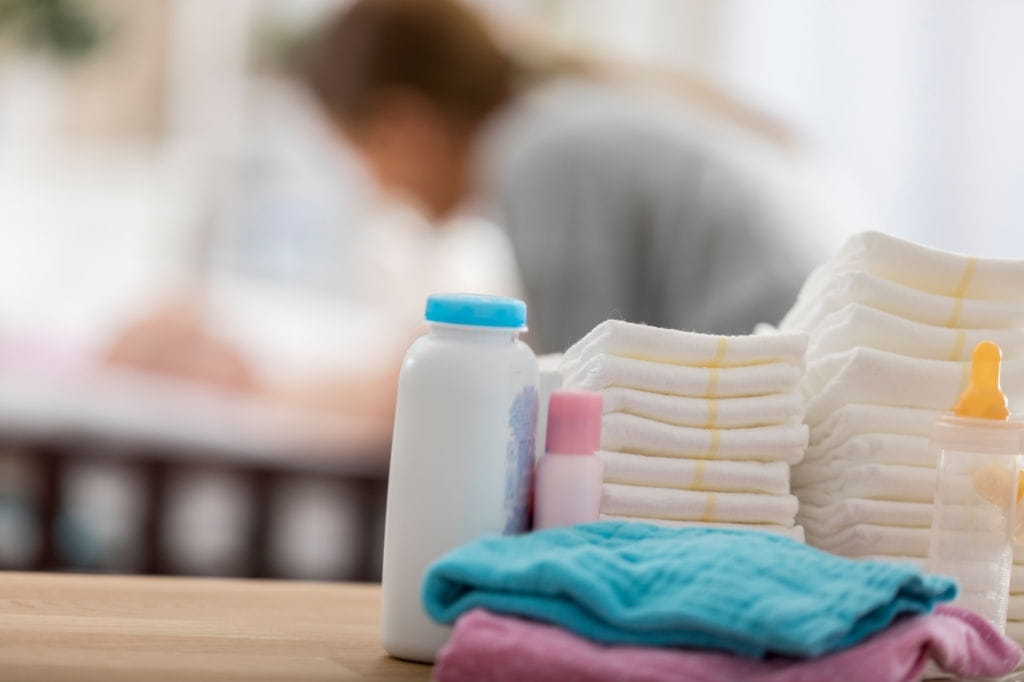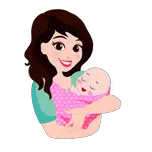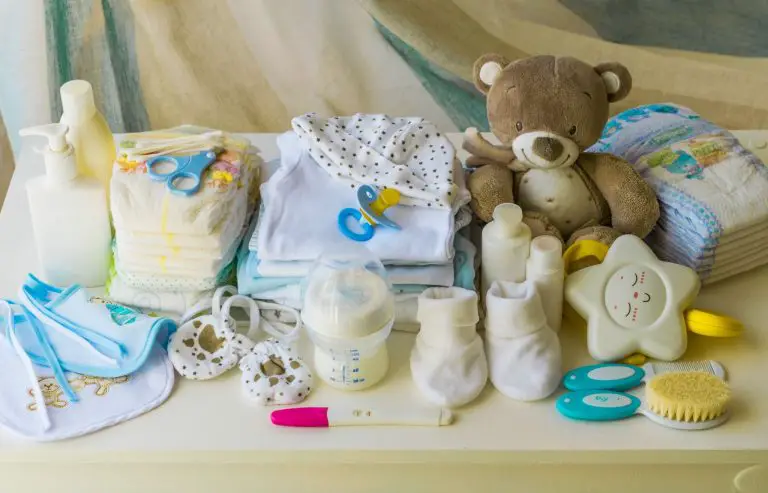
Pregnancy is a magical journey with huge physical and mental changes for a woman. Women will face many health problems such as vomiting, fatigue, loss of appetite, dizziness, or allergies to certain foods or odors. Besides, mental changes also affect eating habits, even somewhat strangely in many women.
That eating disorder is called Pica and is becoming more and more common among pregnant mothers. One of the strangest questions in this disorder is eating cornstarch baby powder while pregnant.
Will eating these strange things affect the pregnancy and the health of the mother? Let us answer in detail in this article.
1. What Is Pica In Pregnancy?
Pica is an eating disorder. The manifestation of this disorder is the continued consumption of non-food items by pregnant women for at least 1 month.
It can also be a sign that a pregnant woman’s body is out of balance in certain substances. Some studies have found that pica may be associated with anemia, including iron-deficiency anemia. This disorder can occur at any stage of pregnancy but usually appears during the first trimester.
Some things people with pica can eat include ice, paper, clay, dirt, soap, chalk, ash, uncooked rice, uncooked grains, hair, wire, cloth, paint chips, glue, metal, cobblestone.
In particular, many pregnant women often enjoy eating baby powder and cornmeal during their pregnancy, so it has become a controversial topic throughout pregnancy safety forums.
This disorder leaves many pregnant women unable to understand why they crave such exotic foods. However, this can also be a warning sign that the body needs additional nutrients.
2. Eating Cornstarch Baby Powder While Pregnant
To answer the question related to this, we first need to learn about what baby powder is, its ingredients, and whether mothers should eat them during pregnancy or not.
What is baby powder used for?
Baby powder is a product that is prepared in the form of a powder in a box. When their children have a heat rash, mothers often use this powder to apply to the heat rash area for the purpose of absorbing all the sweat clinging to the surface of the skin, helping the skin dry.
In addition, some mothers also use talcum powder to rub on areas with folds such as the neck, groin, armpits for children to avoid wetness. Some mothers use it to treat their babies when there are signs of itching.
The ingredients of baby powder include 2 main ingredients: talcum powder and cornstarch.
Talc is a clay mineral with water repellency and anti-inflammatory properties that are used in cosmetic products as well.
Cornstarch is a starch made from corn and is commonly used for cooking. Cornstarch has the ability to absorb excess moisture and oil on the baby’s skin surface to help fight inflammation, soften skin, and be antibacterial.
In addition, the baby powder also contains calcium salts, zinc salts, fats, and some fragrance substances.
Is it safe to eat cornstarch baby powder during pregnancy?
As we have analyzed above, the main ingredients of baby powder are talc powder and cornstarch. In particular, cornflour is often used in cooking and baking, so it is completely harmless to the health of consumers.
However, one issue that we need to pay attention to here is this type of talcum powder. This powder has many studies on harm as well as not good for the health of young children and pregnant mothers.
The International Agency for Research on Cancer (IARC), a division of the World Health Organization (WHO), has classified the use of talcum powder on the genitals and buttocks as possibly carcinogenic to humans. But it also classifies asbestos-containing talc as a “human carcinogen.”
The Centers for Disease Control and Prevention (CDC) and the Occupational Safety and Health Administration have said that repeated inhalation of talcum powder can harm the lungs. The European Union has banned talc in health and beauty products due to health and safety concerns.
Previously, Johnson & Johnson and other health and beauty product companies were required by the US Food and Drug Administration to test their products for toxins. This proves that talcum powder poses a great risk of harm to the health of the average person, so it can be more harmful to pregnant women and young children.
Therefore, an important recommendation for pregnant women is not to eat this baby powder because it will cause many serious harms to their health. In addition, in the first 3 months of pregnancy, if pregnant women eat too much baby powder, it can lead to serious effects on the development of the fetus’s organs.
To ensure safety for the health of mother and baby, pregnant women should only eat cornstarch and alternative flours such as cornstarch, baking soda, tapioca flour, rice starch, flour oat.
3. How To Deal With Pica During Pregnancy?
One reason why your body may crave non-food items is that you are not getting enough nutrients.
During pregnancy, the food you eat provides your own needs, as well as the needs of the developing fetus. Your body needs more nutrition to support pregnancy.
The development and nutritional needs of the fetus can lead to serious nutrient deficiencies in the mother’s body.
Especially, if a mother has morning sickness for the first time, the nutrients will not be able to absorb enough for the body of the mother and fetus due to vomiting and not being able to eat much continuously.
Deficiencies in important minerals like iron and zinc can cause pica. If you’re pregnant, you’re at a higher risk of developing anemia from not getting enough iron or B vitamins. This can also cause cravings for exotic foods.
Previous studies have shown that the groups of women at risk for this eating disorder come from those with poor nutrition or nutrient deficiencies, history or cultural exposure to eating junk foods non-food items, such as eating clay, wood, or lime.
Therefore, to prevent and overcome this eating disorder, before and during pregnancy, you need to supplement with adequate nutrients as well as vitamins and minerals for the body. This will help your body have good health and be ready to receive major hormonal changes in the body.
In addition to adding nutritious foods every day, you should drink more foods such as vitamins, milk, increase resistance as directed by your doctor to have a healthy body. In addition, you should also have regular checkups to detect signs of nutritional deficiencies and timely supplements.
4. Conclude
Pregnant women should not eat baby powder, instead of cornstarch because baby powder contains talc which is harmful to the health of mother and baby.
Eating disorder syndrome can often occur in the first 3 months, so pregnant women should take adequate nutrients, vitamins, and minerals before pregnancy at least 3 months to have a healthy body.

Hi, This is Emma Baster; As a mom, I spend my free time caring for my kids. I’ve read a lot on the Internet to improve my childcare skill and bring the best to my kids. Eruditemommy shares my knowledge and experience through helpful posts. I hope you enjoy them!







